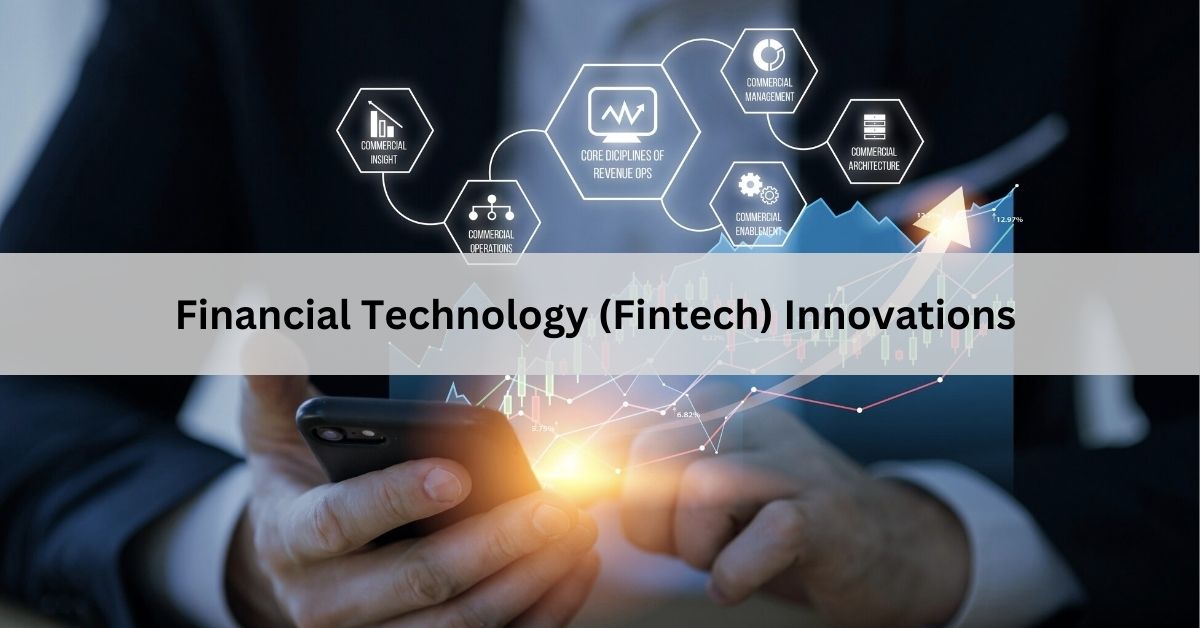Financial Technology (Fintech) Innovations – Shaping the Future of Finance!
Financial technology (Fintech) innovations are revolutionizing the financial services industry, offering new solutions that enhance efficiency, accessibility, and security. This comprehensive guide explores key Fintech trends—from peer-to-peer lending to digital banking—and their impact on financial services. Discover how these innovations are reshaping consumer behavior, regulatory landscapes, and the future of finance.
Peer-to-Peer Lending Platforms: Democratizing Access to Financing
Peer-to-peer (P2P) lending platforms connect borrowers directly with lenders, bypassing traditional financial institutions. These platforms streamline loan processes, offer competitive interest rates, and provide flexible borrowing options for individuals and small businesses. By leveraging technology and data analytics, P2P lending fosters financial inclusion, supports entrepreneurship, and diversifies investment opportunities. Investors benefit from higher returns compared to traditional savings accounts, while borrowers access capital quickly without the stringent requirements of conventional loans.
Mobile Payment Solutions: Transforming Transactions
Mobile payment solutions enable secure, convenient, and contactless transactions using smartphones or wearable devices. From mobile wallets to NFC-enabled payments, these solutions simplify everyday transactions, enhance payment security, and reduce reliance on cash. Businesses integrate mobile payment technologies to improve customer experiences, increase sales conversion rates, and gain insights into consumer spending behaviors. With the rise of digital wallets and QR code payments, mobile payments facilitate financial inclusion and drive the adoption of cashless economies globally.
Blockchain in Financial Services: Reinventing Trust and Transparency
Blockchain technology revolutionizes financial services by decentralizing transactions, enhancing security, and improving transparency. Distributed ledger technology (DLT) powers cryptocurrency transactions, smart contracts, and cross-border payments, reducing transaction costs and settlement times. Blockchain enhances data integrity, mitigates fraud risks, and supports regulatory compliance through immutable records and cryptographic security. Financial institutions explore blockchain applications for asset tokenization, trade finance, and supply chain management, unlocking new efficiencies and transforming traditional banking operations.
Robo-Advisors and Automated Investing: Personalizing Wealth Management
Robo-advisors utilize AI algorithms and machine learning to automate investment advice and portfolio management. These digital platforms assess investor risk profiles, recommend diversified portfolios, and rebalance investments based on market trends and financial goals. Robo-advisors offer cost-effective investment solutions, lower management fees, and provide real-time portfolio monitoring. Investors benefit from personalized financial planning, transparency in investment decisions, and access to sophisticated wealth management tools previously reserved for high-net-worth individuals.
Regulatory Challenges in Fintech: Navigating Compliance Complexities
Fintech innovation faces regulatory challenges concerning consumer protection, data privacy, and financial stability. Governments and regulatory bodies implement frameworks to oversee Fintech activities, ensure fair market practices, and safeguard consumer interests. Compliance with Anti-Money Laundering (AML) regulations, Know Your Customer (KYC) requirements, and data protection laws is crucial for Fintech companies operating globally. Collaborating with regulatory authorities, adopting best practices, and maintaining transparency in operations mitigate legal risks and foster trust in Fintech solutions.
Cybersecurity in Banking and Payments: Safeguarding Digital Assets
Cybersecurity is paramount in Fintech to protect sensitive financial data, prevent cyber threats, and maintain trust in digital banking and payment systems. Implementing robust cybersecurity measures, such as encryption, multi-factor authentication (MFA), and real-time fraud detection, mitigates risks associated with cyberattacks and data breaches. Continuous monitoring of network infrastructure, conducting security audits, and educating employees on cyber hygiene enhances resilience against evolving threats in the digital landscape. By prioritizing cybersecurity, Fintech firms uphold customer confidence, comply with regulatory standards, and ensure operational continuity.
Data Analytics in Credit Scoring: Enhancing Risk Assessment
Data analytics revolutionizes credit scoring by analyzing vast datasets to assess borrower creditworthiness and manage lending risks effectively. Machine learning algorithms predict credit behavior, evaluate repayment probabilities, and customize loan offerings based on individual financial profiles. Alternative data sources, such as social media activity and transaction histories, supplement traditional credit metrics, expanding access to credit for underserved populations. Enhanced credit scoring models improve decision-making accuracy, reduce default rates, and optimize loan portfolio management in Fintech lending operations.
Future Trends in Digital Banking: Innovating Customer Experiences
Future trends in digital banking focus on enhancing customer experiences through personalized services, seamless omnichannel interactions, and AI-driven financial advice. Banks leverage chatbots for customer support, integrate voice-enabled banking apps, and offer virtual reality (VR) banking experiences to engage tech-savvy consumers. Open banking initiatives promote data sharing among financial institutions, fostering innovation in payment solutions and financial products. As digital natives drive demand for digital-first banking experiences, institutions invest in fintech partnerships and technological advancements to meet evolving consumer expectations.
Conclusion: Embracing Fintech Innovation for Financial Evolution
Fintech innovations continue to reshape the financial services landscape, offering transformative solutions that enhance accessibility, security, and efficiency. From peer-to-peer lending platforms and mobile payment solutions to blockchain applications and robo-advisors, these technologies empower consumers, streamline operations, and drive industry-wide innovation. Navigating regulatory challenges, prioritizing cybersecurity, and harnessing data analytics are critical for sustainable growth and compliance in Fintech. Embrace fintech innovation to unlock new opportunities, deliver superior financial experiences, and drive the future of finance forward.







